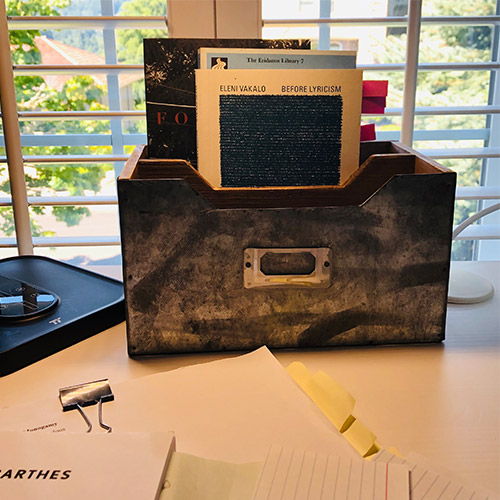

Zumas is also the author of Farewell Navigator: Stories and the novel The Listeners. She lives near Portland, Oregon, and directs the MFA program at Portland State University. Red Clocks was a New York Times Book Review Editors’ Choice and was named a Best Book of 2018 by The Atlantic, the Washington Post, the Huffington Post, and the New York Public Library. Leni Zumas won the 2019 Oregon Book Award for her national bestselling novel Red Clocks, which was shortlisted for the Orwell Prize for Political Fiction and the Neukom Prize for Speculative Fiction. This is a story of resilience, transformation, and hope in tumultuous-even frightening-times.Flannery O’Connor once said of Franz Kafka’s The Metamorphosis: “The truth is not distorted here, but rather distortion is used to get at the truth.” The techniques of defamiliarization, or what the Russian critic Viktor Shklovsky called “making strange,” can spark fresh and thrilling possibilities in any writer’s prose. In this workshop, a range of writing prompts, in-class exercises, and conversations will encourage each participant to investigate these possibilities. As well as generating and sharing work in progress, we’ll look at published fiction that may inspire our own inventions and give us the courage to try something unexpected. In the vein of Margaret Atwood and Eileen Myles, Leni Zumas fearlessly explores the contours of female experience, evoking The Handmaid's Tale for a new millennium. And Gin is the gifted, forest-dwelling herbalist, or "mender," who brings all their fates together when she's arrested and put on trial in a frenzied modern-day witch hunt.Red Clocks is at once a riveting drama, whose mysteries unfold with magnetic energy, and a shattering novel of ideas. She is the author of Red Clocks, The Listeners, and the story collection Farewell Navigator.


Mattie is the adopted daughter of doting parents and one of Ro's best students, who finds herself pregnant with nowhere to turn. Leni Zumas is an American writer from Washington, D.C., who lives in Oregon. Susan is a frustrated mother of two, trapped in a crumbling marriage.

In a small Oregon fishing town, five very different women navigate these new barriers alongside age-old questions surrounding motherhood, identity, and freedom.Ro, a single high school teacher, is trying to have a baby on her own, while also writing a biography of Eivor, a little-known nineteenth-century female polar explorer. What is a woman for?In this ferociously imaginative novel, abortion is once again illegal in America, in vitro fertilization is banned, and the Personhood Amendment grants rights of life, liberty, and property to every embryo.


 0 kommentar(er)
0 kommentar(er)
